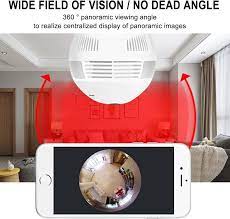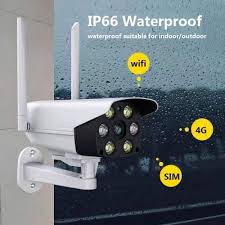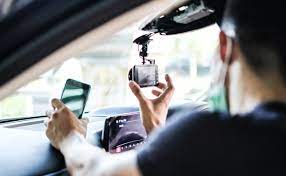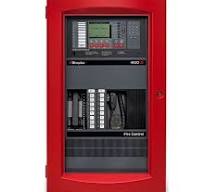Hidden CCTV Camera: The Unseen Guardian
In today’s fast-paced world, security has become a paramount concern for individuals and businesses alike. Whether it’s protecting your home, office, or any valuable property, having a reliable surveillance system is crucial. While traditional CCTV cameras are effective deterrents, there is another option that takes security to the next level – hidden CCTV cameras.
Hidden CCTV cameras, also known as covert or spy cameras, are designed to be discreet and blend seamlessly into their surroundings. These compact devices are strategically placed in inconspicuous objects such as clocks, smoke detectors, or even teddy bears. Their purpose is to capture footage without drawing attention to themselves, allowing you to monitor activities discreetly.
One of the key advantages of hidden CCTV cameras is their ability to catch people off guard. Criminals often look for visible surveillance systems and may alter their behavior if they spot one. However, with hidden cameras in place, they remain unaware that they are being watched. This provides an added advantage when it comes to gathering evidence for potential criminal activities or identifying wrongdoers.
Apart from their covert nature, hidden CCTV cameras offer several other benefits. Firstly, they provide flexibility in terms of placement. These devices can be installed in various locations where traditional cameras may not be suitable or noticeable enough. For example, you can place them in bedrooms for nanny monitoring or in retail stores to prevent shoplifting without compromising the overall aesthetics.
Secondly, hidden CCTV cameras can be remotely monitored using mobile applications or computer software. This allows you to keep an eye on your property from anywhere at any time. Whether you’re at work or on vacation, you can have peace of mind knowing that your surveillance system is just a few taps away.
Moreover, hidden CCTV cameras come equipped with advanced features such as motion detection and night vision capabilities. Motion detection ensures that the camera only records when there is activity within its field of view, saving storage space and making it easier to review footage. Night vision enables the camera to capture clear images even in low-light conditions, ensuring round-the-clock surveillance.
It’s important to note that the use of hidden CCTV cameras must comply with legal and ethical standards. While they can be a powerful tool for security, it’s crucial to respect privacy laws and inform individuals if they are being recorded in areas where privacy is expected.
In conclusion, hidden CCTV cameras provide an effective and discreet solution for enhancing security. Their inconspicuous nature, flexibility in placement, remote monitoring capabilities, and advanced features make them a valuable asset in safeguarding your property. However, responsible usage and adherence to legal guidelines are essential to ensure the ethical implementation of these surveillance devices. With hidden CCTV cameras as your unseen guardians, you can have peace of mind knowing that you have an extra layer of protection watching over what matters most to you.
Frequently Asked Questions About Hidden CCTV Cameras: A Guide to Legal Requirements, Functionality, Types, Risks, and Security Features in India
- What are the legal requirements for installing a hidden CCTV camera?
- How does a hidden CCTV camera work?
- Is it legal to install hidden CCTV cameras in my home?
- What is the best type of hidden CCTV camera to use?
- How do I know if I am being monitored by a hidden CCTV camera?
- Can I view footage from a hidden CCTV camera remotely?
- Are there any risks associated with using a hidden CCTV camera?
- What types of security features should I look for in a hidden CCTV camera system?
- Are there any laws that govern the use of a hidden CCTV camera in India?
What are the legal requirements for installing a hidden CCTV camera?
The legal requirements for installing a hidden CCTV camera vary depending on the jurisdiction and specific circumstances. It is crucial to familiarize yourself with the laws and regulations in your country or region before installing such surveillance equipment. Here are some general considerations:
- Consent: In most jurisdictions, it is required to obtain the consent of individuals being recorded in areas where privacy is expected, such as private residences, bathrooms, changing rooms, or hotel rooms. Consent may be implied if clear signage indicating the presence of CCTV cameras is displayed.
- Public vs. Private Spaces: Different rules may apply to public spaces compared to private spaces. Generally, there is a lower expectation of privacy in public areas, but it is still important to comply with local laws regarding the placement and use of surveillance equipment.
- Notification: It is typically necessary to inform individuals that they are being recorded in areas where privacy expectations are reduced but not entirely eliminated, such as retail stores, offices, or common areas within residential complexes. This can be achieved by displaying signs indicating the presence of CCTV cameras.
- Purpose Limitation: The purpose for which you install hidden CCTV cameras should be legitimate and justifiable, such as security or crime prevention. Using hidden cameras for illegal purposes like voyeurism or invasion of privacy is strictly prohibited.
- Data Protection: Ensure compliance with data protection laws regarding the collection, storage, and handling of recorded footage. This may include measures such as secure storage, limited access to recordings, and adherence to data retention periods.
- Consult Legal Professionals: Laws related to surveillance can be complex and subject to change. It’s advisable to consult legal professionals who specialize in privacy and surveillance laws in your jurisdiction for accurate guidance.
Remember that this response provides general information and should not be considered legal advice. To ensure compliance with specific legal requirements regarding hidden CCTV camera installation, always consult local laws and seek professional advice from qualified legal experts.
How does a hidden CCTV camera work?
Hidden CCTV cameras work in a similar manner to traditional CCTV cameras, but with the added element of being discreetly concealed within everyday objects. Here’s a breakdown of how a hidden CCTV camera typically operates:
- Camera Lens: The camera lens is the essential component that captures the video footage. It is usually small in size and carefully positioned within the hidden object to provide an optimal viewing angle.
- Image Sensor: The image sensor converts the light captured by the camera lens into an electrical signal, which is then processed to create a video image. Depending on the camera’s specifications, it may use either a CCD (Charge-Coupled Device) or CMOS (Complementary Metal-Oxide-Semiconductor) sensor.
- Video Processing: The electrical signals from the image sensor are processed by internal circuitry within the camera. This processing enhances and adjusts the captured video for better clarity and quality.
- Recording Device: Hidden CCTV cameras may have built-in storage capabilities or require an external recording device to store the captured footage. Some cameras have SD card slots, while others can connect wirelessly to a network video recorder (NVR) or cloud storage for seamless recording and remote access.
- Power Source: Hidden CCTV cameras are typically powered using either batteries or by connecting them directly to an electrical outlet. Battery-powered cameras offer flexibility in terms of placement but require periodic battery replacement or recharging.
- Connectivity: Depending on the camera’s features, it may have built-in Wi-Fi or wired connectivity options for remote monitoring and access via mobile applications or computer software. This allows users to view live feeds and recorded footage from anywhere with an internet connection.
- Motion Detection: Many hidden CCTV cameras come equipped with motion detection technology that triggers recording only when there is movement within their field of view. This helps conserve storage space and makes it easier to review relevant footage.
- Disguised Housing: Hidden CCTV cameras are ingeniously concealed within everyday objects such as clocks, smoke detectors, or even picture frames. These objects are carefully designed to accommodate the camera components while maintaining their normal appearance, ensuring that the camera remains discreet and inconspicuous.
Overall, hidden CCTV cameras combine the functionality of a traditional surveillance camera with clever concealment, enabling discreet monitoring and capturing of video footage without drawing attention.
Is it legal to install hidden CCTV cameras in my home?
The legality of installing hidden CCTV cameras in your home can vary depending on the jurisdiction and specific laws in your country or state. It is essential to familiarize yourself with the legal requirements and regulations regarding surveillance and privacy in your area.
In general, it is typically legal to install CCTV cameras within your own property for security purposes. However, there are certain considerations to keep in mind:
- Consent: If you are recording areas where individuals have a reasonable expectation of privacy, such as bedrooms or bathrooms, it is generally necessary to obtain consent from anyone who may be recorded. This includes family members, guests, or employees if applicable.
- Disclosure: Depending on local laws, you may be required to inform individuals that they are being recorded by displaying signs or providing notice of surveillance.
- Audio Recording: Some jurisdictions have specific regulations regarding audio recording. In certain places, it may be illegal to record audio without the consent of all parties involved.
- Prohibited Areas: It is crucial to respect the privacy rights of others and avoid placing cameras in areas where privacy expectations are high, such as changing rooms or private offices.
To ensure compliance with the law and ethical practices, consult local authorities or seek legal advice regarding the specific regulations applicable to your situation. Understanding and adhering to these guidelines will help you use hidden CCTV cameras responsibly while protecting both your property and the privacy rights of others.
What is the best type of hidden CCTV camera to use?
When it comes to choosing the best type of hidden CCTV camera, several factors should be taken into consideration based on your specific requirements. Here are a few popular options to consider:
- PIR Motion Sensor Cameras: These cameras have built-in Passive Infrared (PIR) sensors that detect motion and trigger recording only when movement is detected. This helps conserve storage space and makes it easier to review relevant footage.
- Smoke Detector Cameras: Designed to look like ordinary smoke detectors, these cameras blend seamlessly into the environment. They are ideal for discreetly monitoring areas such as offices, retail stores, or homes.
- Clock Cameras: Clock cameras are a popular choice for hidden surveillance due to their inconspicuous nature. They can be placed on walls or shelves and provide a wide-angle view of the room while functioning as regular clocks.
- Teddy Bear Cameras: These covert cameras are concealed within cuddly teddy bears, making them perfect for monitoring nurseries or children’s playrooms while ensuring a non-threatening appearance.
- Outlet Cameras: Outlet cameras mimic electrical outlets and can be easily installed in any room without raising suspicion. They offer a wide-angle view and can be an effective solution for home or office surveillance.
- Pen Cameras: Disguised as ordinary writing pens, these hidden cameras are portable and allow you to discreetly record video and audio in various situations.
- Button Cameras: Button cameras are small devices that can be attached to clothing, making them suitable for undercover operations or situations where handheld cameras may not be feasible.
It’s important to note that the best type of hidden CCTV camera depends on the specific location and purpose of surveillance. Factors such as viewing angle, video resolution, storage capacity, battery life (if applicable), and remote access capabilities should also be considered when making a decision.
Additionally, ensure that you purchase from reputable manufacturers or suppliers to ensure the quality and reliability of the camera. Conduct thorough research, read customer reviews, and consult with security professionals if needed to determine the best type of hidden CCTV camera that suits your specific needs.
How do I know if I am being monitored by a hidden CCTV camera?
Detecting hidden CCTV cameras can be challenging as they are designed to be discreet and blend into their surroundings. However, there are a few steps you can take to increase your chances of identifying if you are being monitored:
- Conduct a physical inspection: Look for any unusual or out-of-place objects in the room or area you suspect may have a hidden camera. Check for items such as smoke detectors, wall clocks, picture frames, or even decorative objects that seem unnecessary or positioned oddly.
- Pay attention to reflections: Hidden cameras often have small lenses that reflect light differently than other objects in the room. Look for any unusual glimmers or reflections coming from objects that don’t typically reflect light.
- Use a flashlight: In low-light conditions, use a flashlight and scan the room carefully. Hidden camera lenses may appear as small glimmers when illuminated by the flashlight.
- Listen for strange sounds: Some hidden cameras may emit faint buzzing or clicking sounds. If you notice any unusual noises coming from electronic devices or objects, it could indicate the presence of a hidden camera.
- Use a wireless signal detector: Hidden cameras often transmit video signals wirelessly to a receiver or storage device. A wireless signal detector can help identify any active wireless signals in the area, which may indicate the presence of hidden cameras.
- Utilize smartphone apps: Several smartphone apps claim to detect hidden cameras by using your phone’s camera and infrared sensors to identify unusual patterns or reflections. While their effectiveness may vary, they can be an additional tool in your detection process.
- Seek professional assistance: If you have strong suspicions but are unable to locate any obvious signs of hidden cameras, consider hiring a professional security expert who specializes in detecting surveillance devices. They have specialized equipment and expertise to thoroughly sweep an area for hidden cameras.
It’s important to remember that while these methods can help increase your chances of detecting hidden CCTV cameras, they are not foolproof. Some hidden cameras are designed to be virtually undetectable. If you have concerns about your privacy, it’s always best to consult with a professional or contact the appropriate authorities for assistance.
Can I view footage from a hidden CCTV camera remotely?
Yes, you can view footage from a hidden CCTV camera remotely. Many hidden CCTV cameras are equipped with Wi-Fi connectivity, allowing you to access the live feed and recorded footage from your smartphone, tablet, or computer using a dedicated mobile application or software.
To remotely view the footage, you would typically need to connect the hidden camera to your home or office Wi-Fi network. Once connected, you can download the corresponding app or software provided by the camera manufacturer and follow the setup instructions. This usually involves creating an account, pairing the camera with your account, and configuring settings such as motion detection or recording schedules.
Once set up, you can access the live feed of your hidden CCTV camera from anywhere with an internet connection. Simply open the app or software on your device and log in to your account. You will be able to see a real-time video stream of what the camera is capturing.
In addition to live viewing, most apps and software also allow you to review recorded footage remotely. You can access saved video clips or view recordings based on specific dates and times. Some systems even offer features like motion alerts that send notifications to your device when activity is detected within the camera’s field of view.
It’s worth noting that remote viewing capabilities may vary depending on the specific brand and model of hidden CCTV camera you choose. It’s recommended to thoroughly review the product specifications and features before making a purchase to ensure it meets your requirements for remote access and monitoring.
Are there any risks associated with using a hidden CCTV camera?
While hidden CCTV cameras can be beneficial for security purposes, there are potential risks and ethical considerations that should be taken into account. Here are a few risks associated with using hidden CCTV cameras:
- Privacy Concerns: The use of hidden cameras raises privacy concerns, especially if they are installed in private areas such as bedrooms, bathrooms, or changing rooms. It is important to respect individuals’ privacy rights and comply with legal requirements regarding the use of surveillance equipment.
- Legal Compliance: Laws regarding the use of surveillance cameras vary from country to country and even within different jurisdictions. It is crucial to familiarize yourself with local laws and regulations related to video surveillance, including obtaining consent if required.
- Trust and Transparency: Using hidden CCTV cameras without informing people who may be subject to monitoring can damage trust and relationships. It is essential to consider the impact on personal relationships, employee morale, or customer trust when implementing covert surveillance measures.
- Misuse and Abuse: Hidden cameras can potentially be misused or abused by individuals for malicious purposes such as voyeurism or invasion of privacy. Strict access control measures should be implemented to prevent unauthorized access to recorded footage.
- False Sense of Security: While hidden CCTV cameras can provide an extra layer of security, they should not replace other security measures such as proper lighting, alarms, or physical barriers. Relying solely on hidden cameras may create a false sense of security and leave vulnerabilities unaddressed.
- Technical Limitations: Hidden CCTV cameras may have limitations in terms of image quality, field of view, or recording capacity compared to traditional visible cameras. It is important to carefully consider these technical aspects before opting for covert surveillance.
To mitigate these risks, it is recommended to consult with legal professionals specializing in surveillance laws and ethics before installing hidden CCTV cameras. Open communication about the presence of surveillance systems with employees, residents, or visitors can help maintain transparency and address any concerns that may arise. Ultimately, responsible and ethical use of hidden CCTV cameras is essential to ensure that security measures do not infringe upon privacy rights or cause harm to individuals.
What types of security features should I look for in a hidden CCTV camera system?
When selecting a hidden CCTV camera system, there are several key security features that you should consider to ensure optimal performance and effectiveness. Here are some important features to look for:
- High-resolution video: Choose a camera system that offers high-resolution video quality, preferably in HD or even higher resolutions. This ensures clear and detailed footage, making it easier to identify individuals and events.
- Wide-angle lens: Look for a camera with a wide-angle lens that provides a broad field of view. This allows you to capture more area with a single camera, reducing the need for multiple cameras and providing better coverage.
- Night vision capability: Opt for a hidden CCTV camera system with built-in infrared (IR) LEDs or low-light sensors for night vision. This feature enables the camera to capture clear images even in complete darkness or low-light conditions.
- Motion detection: Cameras equipped with motion detection technology can detect movement within their field of view and trigger recording automatically. This helps conserve storage space by only capturing footage when there is activity, making it easier to review relevant events.
- Remote access and monitoring: Ensure that the hidden CCTV camera system allows remote access and monitoring through mobile applications or computer software. This feature enables you to view live feeds and recorded footage from anywhere using your smartphone, tablet, or computer.
- Storage options: Consider the storage options available with the camera system. Look for systems that support local storage via SD cards or external hard drives, as well as those that offer cloud storage options for added convenience and redundancy.
- Encryption and data security: Security should extend beyond physical surveillance footage. Ensure that the hidden CCTV camera system employs encryption protocols to protect data transmission and storage, safeguarding against unauthorized access.
- Tamper detection/alerts: Some advanced hidden CCTV cameras have tamper detection capabilities that can send alerts if someone attempts to interfere with or disable the camera system. These alerts can be sent via email, push notifications, or SMS, providing an added layer of security.
- Easy installation and setup: Look for a hidden CCTV camera system that is easy to install and set up. Consider whether it requires professional installation or if it can be done as a DIY project.
- Compatibility with existing systems: If you already have a CCTV camera system in place, ensure that the hidden cameras are compatible with your existing infrastructure. This includes compatibility with your video management software (VMS), network video recorder (NVR), or other surveillance equipment.
By considering these security features when selecting a hidden CCTV camera system, you can make an informed decision and choose a system that meets your specific needs for discreet surveillance while ensuring the utmost security of your property.
Are there any laws that govern the use of a hidden CCTV camera in India?
In India, the use of CCTV cameras, including hidden or covert cameras, is governed by various laws and regulations to protect the privacy and rights of individuals. The primary legislation that addresses this issue is the Information Technology (Reasonable Security Practices and Procedures and Sensitive Personal Data or Information) Rules, 2011, under the Information Technology Act, 20
- According to these rules, any person or entity operating CCTV cameras must ensure compliance with the following guidelines:
- Notice: Prior notice must be provided to individuals about the presence of CCTV cameras in operation. This can be done through signage or other means that are clearly visible and easily understandable.
- Consent: Consent from individuals must be obtained before recording their personal data or information. Individuals should be informed about the purpose of recording and how their data will be used.
- Proportionality: The collection of personal data through CCTV cameras must be proportionate to the purpose for which it is being collected. Excessive monitoring beyond what is necessary may not be permissible.
- Security: Adequate security measures must be implemented to protect the collected data from unauthorized access, disclosure, or misuse.
- Retention: The recorded data should only be retained for as long as necessary for the purpose it was collected. Once its purpose has been fulfilled, it should be securely deleted.
Apart from these rules, other laws such as the Indian Penal Code (IPC) and various state-specific laws may also apply in certain situations involving hidden CCTV cameras. For instance, capturing images or videos of someone without their consent in private spaces could potentially violate privacy laws and lead to legal consequences.
It’s important to consult with legal professionals or experts who specialize in privacy and surveillance laws in India to ensure compliance with all relevant regulations before installing hidden CCTV cameras or engaging in any surveillance activities.




